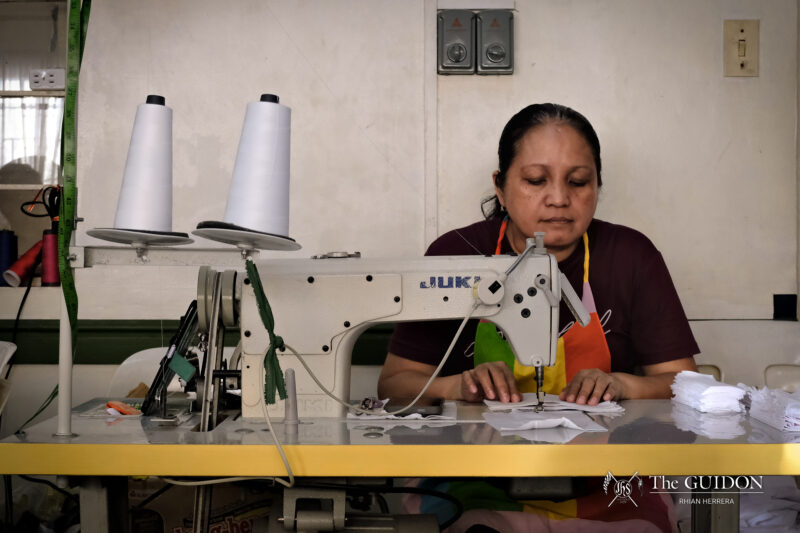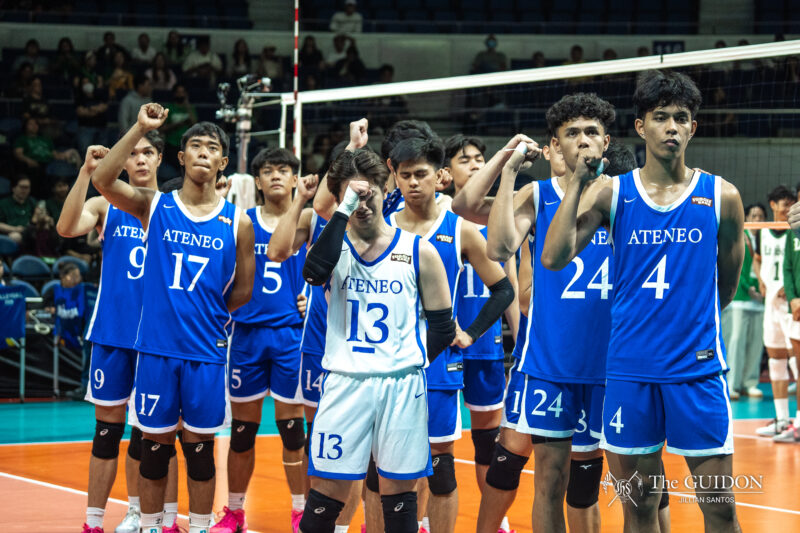While in school, she receives a text message from her parents, saying “We have a surprise for you.” She rushes home to find her dad with a phone camera and her mom with a letter in hand. After reading the letter’s contents, she screams and runs around the house.
Although it is Ceej Tantengco’s (I AB Comm) second Don Carlos Palanca Memorial Award for Literature, she claims winning is not something she gets used to. This year, her entry “Things that Lie Beyond the Postcards” won second place in the Kabataan Essay English Division. The six-page essay is grounded on Ceej’s personal experiences within Manila.
For others who are given this award, winning is a privilege. But what is perhaps veiled by the recognition and the cash prizes is a deeper understanding of a Palanca’s worth, one that varies from winner to winner.
Passion for writing and Manila
“When you’re an only child [like me], you don’t really have anyone to talk to,” she says. Ceej says her fondness for writing came from her love of books. “[From there], you learn to enjoy writing.”
Her passion for writing carried on to high school. Back in her junior year, a professor approached Ceej with a Palanca entry form in hand and asked her to join the contest. Her first win merited her first prize in the Kabataan Essay English Division. Ceej tried her luck at winning a second time and succeeded.
“Things that Lie Beyond the Postcards” is Ceej’s response to this year’s Kabataan Essay theme: Where would you take a foreigner? “I really feel passionately about Manila. I don’t want [the foreigner] to go to the beach where everything is perfect,” she says. “I want [him] to meet Filipinos, eat isaw (chicken’s intestines), [and] get dirty.”
Given her Palanca accomplishments, Ceej says she has become more confident with her writing. “When you win, it’s really good encouragement.”
Getting the byline across
Like Ceej, Marie La Viña (III AB Philo) developed an interest in writing at an early age. However, she says writing is a struggle for her. “There is some fondness involved but also a fair amount of agony,” she says. “[But] I think it’s healthy for writers to agonize over their work sometimes.”
Marie majored in Creative Writing while in the Philippine High School for the Arts in Mt. Makiling. She then ventured to get her works published by contributing to Philippines Free Press and Story Philippines. Currently, she is the English Editor of Heights, the official literary publication of the Ateneo.
For this year’s Poetry English Division category, Marie entered her poetry collection “The Gospel According to the Blind Man,” which won third place. “It means a lot to me to have won one [a Palanca],” she says. “I’ve wanted to be a writer since the age of 12.”
She admits, “I can’t speak for everyone, but I think a lot of aspiring writers hope to win at some point.”
Aside from the recognition and the acknowledgement, a Palanca win for Marie entails other things. “Whether or not you win [a Palanca], writing a suite of poems is [already] an accomplishment,” she says.
Marie says she has become less shy to share her work with others. “There is more openness and less hesitation,” she says. On Mondays, she meets with a group of writers to read their works and engage in poetry exercises.
Similarly, Filipino Instructor April Imson joined the Palanca Awards to gain recognition for her work. After four years of joining the contest, Imson’s “Karding at ang Buwaya,” originally a thesis proposal for her masteral course, won second place in the Kwentong Pambata category, finally bagging her a win. She says in Filipino, “I had [a story] to enter to the contest, so I thought, ‘why not?’”
Imson’s fascination with crocodiles was her story’s focal point since she recalls the diverse representations of such a creature in Philippine literature. Following her win, Imson says she wishes to come up with a series of books about Karding’s adventures.
Aside from giving her a large readership, Imson says she is able to show her father that her writing would land her somewhere. “My dad wanted me to pursue nursing to make money,” she says in Filipino. “But this Palanca win made him happy.” Now, she says she does not question her chosen field of interest.
Not the only measure
Project Manager of the Palanca Awards Nemie Bermejo says the award-giving body has been able to establish its reputation for 58 years, as it is the only literary contest in the Philippines. “They say [that] once you are a Palanca winner [you are already] done as a writer,” she says. She claims that while a Palanca Award does not necessarily determine a writer’s level of talent, it helps.
Filipino Assistant Professor Christine Bellen adds in Filipino, “It is the most prestigious award-giving body in the country because the judges are credible individuals to begin with. But the Palanca does not measure what type of writer one is. It just sets a trend.” Bellen was a judge for this year’s Kwentong Pambata Division.
She adds that the judges set the standard of writing similar to what is taught in top universities like the Ateneo and the University of the Philippines. “If a student from [a lesser known university] joins the Palanca, judges from the top universities opt for those who subscribe to the set standard,” Bellen says in Filipino. “I believe in the Palanca Awards because it has already established its reputation.”
For winners like Ceej, a Palanca Award goes beyond the recognition and the prestige. “It’s not about winning [but] about learning. If you win, you’re doing something right. If you lose, something went wrong,” she says. “You [should] not [become] big-headed [because it is like] I could be okay today, and tomorrow I’ll be total crap.”
Marie agrees, “[As a winner] it doesn’t mean that everything you write from then on will be well-received. But it does mean that three people saw something good in your work, and that is an honor in itself.”






